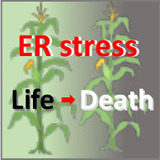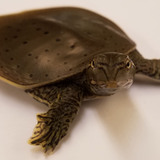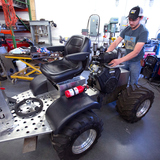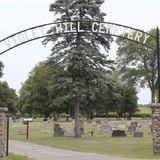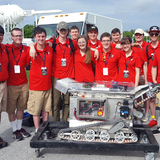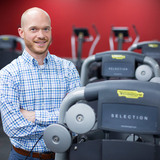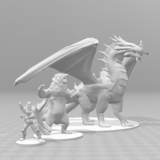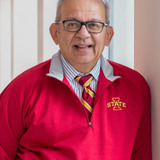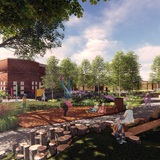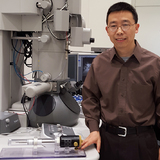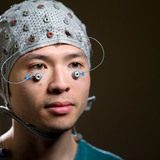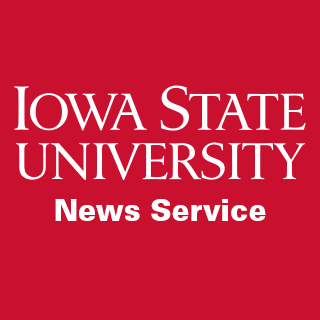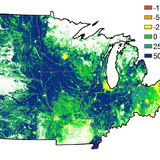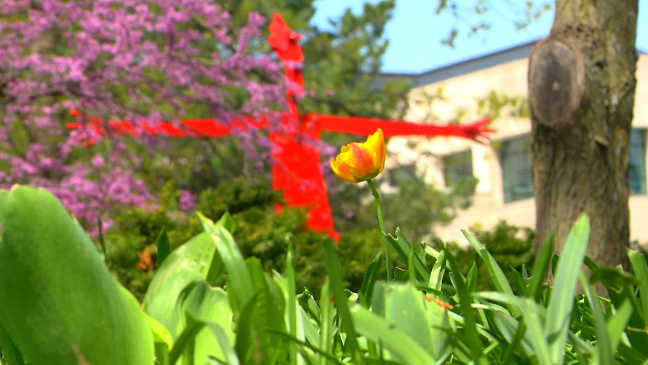News Archive
Thursday, May 31 2018
-
Plant scientists use big data to map stress responses in corn
Recently published research from Iowa State University plant scientists maps the stress response detected by the endoplasmic reticulum, an organelle in cells of corn seedlings. The study shows how cells transition from adaptation to death when faced with persistent stress and could help plant breeders develop stress-resistant crop varieties.
-
Primary to yield record number of women on general election ballot
There is reason to be optimistic the number of women in the Iowa Legislature in 2019 will surpass the record set 10 years prior. At a minimum, 65 women will be on the general election ballot, but depending on primary results it could be as high as 96.
-
CYstarters mentors offer support, push for new startups
Clayton Mooney credits the success of startup company KinoSol in part to a piece of advice from a CYstarters mentor. Mooney says it pushed him and his partners to improve their product. CYstarters mentors provide guidance and a level of accountability to ensure the startups – all at different levels of development – progress and stay on track.
-
Turtle and bird genomes provide tantalizing clues to dinosaur genomics, according to ISU scientist
Comparing how the chromosomes of modern-day birds and turtles are structured can help scientists figure out how dinosaur genomes might have looked. An Iowa State University scientist contributed to an international research team that recently published its findings reaching back through 260 million years of genomics.
-
Cyclone Power Pullers hope new tractor configuration will help to carry the load in engineering competition
The quarter-scale tractor ISU students will enter into a competition in a few weeks draws a stark contrast to the club’s efforts in previous years. Changes to the competition’s rules allowed the ISU team to build a segmented tractor that team members hope will allow for greater maneuverability.
-
Iowa State students develop plans for crowded cemeteries, a looming issue for communities across the nation
An Iowa State University researcher brought his unique work to the classroom, studying the land-use implications of cemeteries and burial. This semester, his students researched and planned various options for the city of Perry, which – like many communities across the United States – is facing space constraints in its cemetery.
-
Cyclone Space Mining launches new concept for NASA’s Robotic Mining Competition
Cyclone Space Mining returns to NASA's Kennedy Space Center May 14-18 with new ideas about mining, collecting and unloading simulated Martian soil. Team members have designed and built a bigger, heftier machine with the goal of digging deeper into the hard soil so they can scoop up more of the gravel that represents subsurface Martian ice.
-
Motivation to move may start with being mindful
A meditation and stress reduction program may be as effective at getting people to move more as structured exercise programs, according to a new study led by an Iowa State University researcher. Jacob Meyer, an assistant professor of kinesiology, also is part of another study that found resistance training reduces symptoms of depression.
-
From 10-minute pitches to a 10-week intensive: Meet three startups accepted to CYstarters
After a 10-week intensive accelerator program this summer, a new cohort of Iowa State University student entrepreneurs will come up for air with a plan to move their startup businesses forward. Meet three of the startups that made the cut for this year’s cohort.
-
Des Moines business leader joins Ivy College of Business
Suku Radia joins the Debbie and Jerry Ivy College of Business as it launches an executive MBA program — the first in the Midwest to focus on food, agriculture and biosystems. Radia, who recently retired from Bankers Trust, will serve as executive-in-residence and will be instrumental in planning and leading a high-quality speaker series for those enrolled.
-
Iowa State students design, build children’s garden at Iowa women’s prison
Iowa State University design students worked with incarcerated women and prison staff at the Iowa Correctional Institution for Women to design and build a children’s garden, which will encourage positive family visits and healthy relationships.
-
Engineers studying nanodefects suspected of causing early failures of electrical materials
Breakdowns in electrical materials can lead to short circuits and blown fuses, robbing the power grid and even cell phones of reliability and efficiency. Iowa State's Xiaoli Tan is working to be the first to see and record how nanoscale defects in electrical insulators may evolve into material breakdowns. The project is supported by the U.S. Department of Energy's Basic Energy Sciences Program.
-
Iowa State student named Udall Scholar
Zoey Mauck, a senior working toward degrees in landscape architecture and community and regional planning, has been named a 2018 Udall Scholar for her tireless efforts to make communities more bicycle- and pedestrian-accessible through planning, design and community engagement.
-
Brain activity, reactivity help explain diabetics’ negative feelings and risk for depression
For millions of Americans who are obese and living with diabetes or prediabetes, feelings of sadness, anger and anxiety are often part of daily life. A new Iowa State University study suggests those negative feelings may stem from problems regulating blood sugar levels that influence emotional response in the brain.
-
Simpson named registrar
Mark Simpson, director of enterprise student systems at the University of Utah, Salt Lake City, has been named Iowa State's new registrar, effective May 21.
-
Iowa State University researchers model how Midwestern land-use changes affect carbon storage over the last 165 years
Expanded agricultural activity throughout the Midwest since 1850 has reduced the amount of carbon that can be stored in the soil, according to models designed by ISU scientists. However, modern farming practices such as no till can improve carbon sequestration, which could help to slow climate change.
